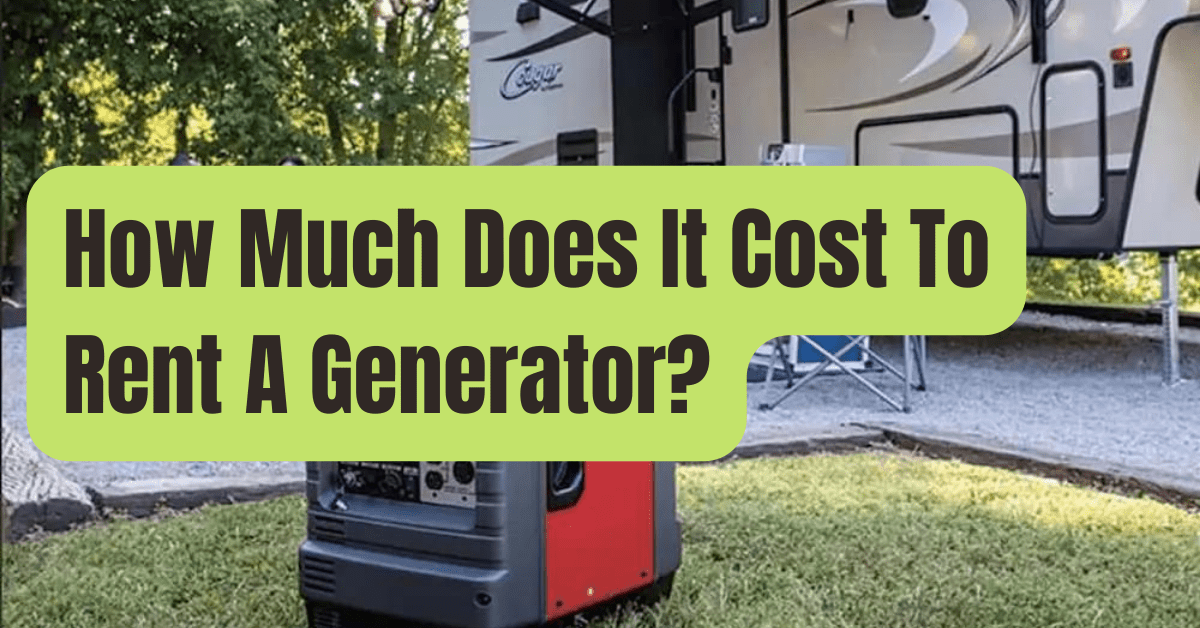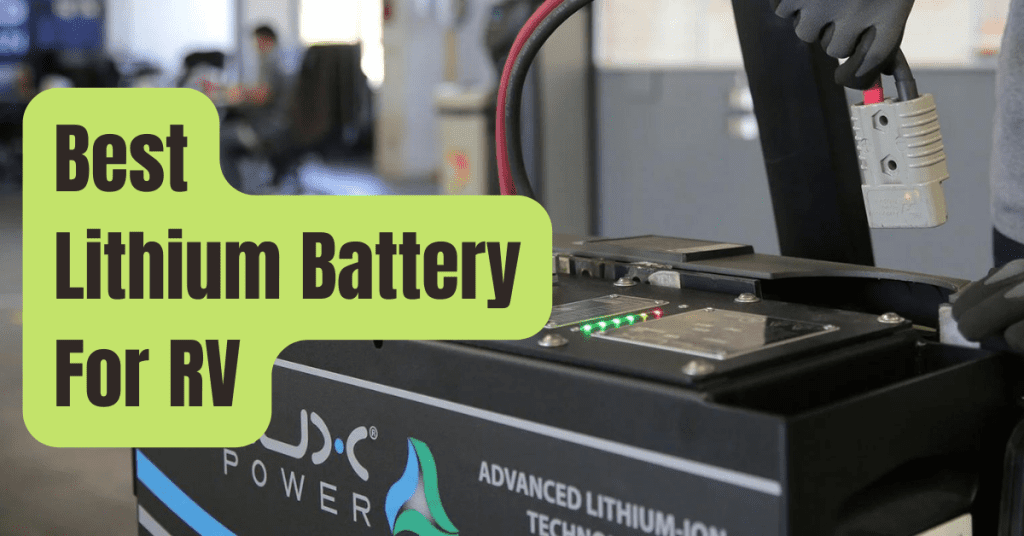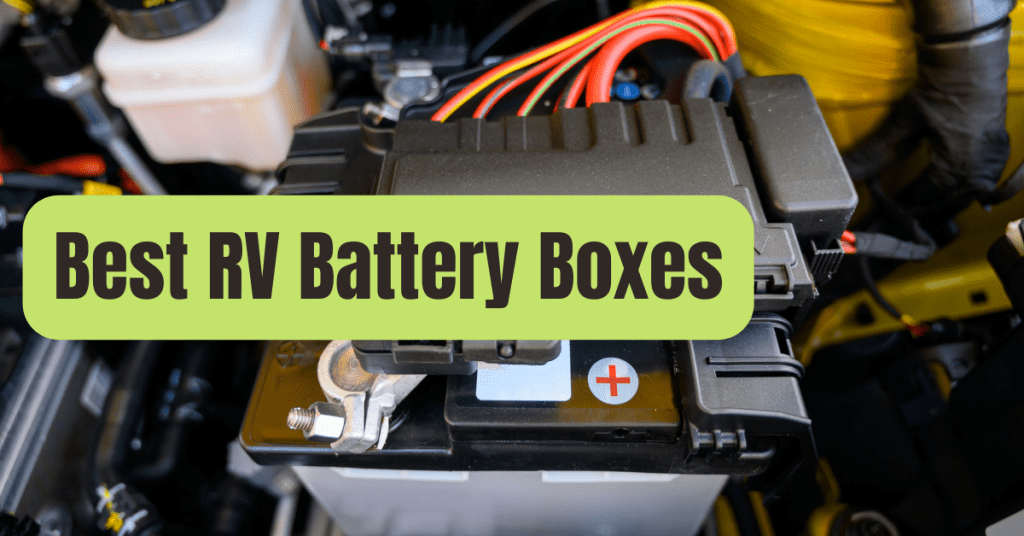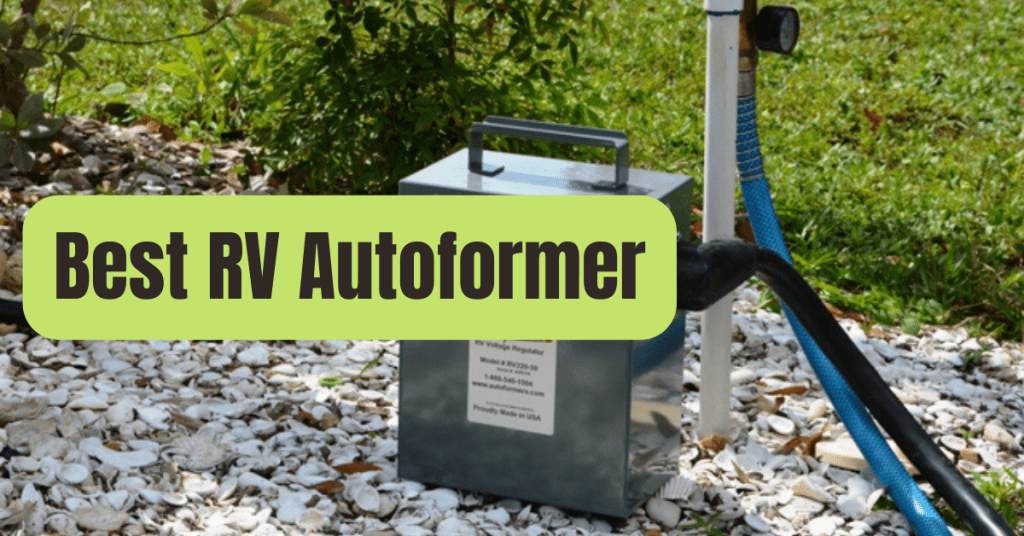If you just need electricity for one day, you may be shocked at how much a generator rental might cost.
If the generator is required for more than just emergency use, it may be more cost effective to own your own and rent from someone else in the event of a power loss.
The cost is also determined by whether or not power is required, as well as other factors such as local limitations.
An Estimate of the Cost of Renting a Generator
- This pricing is based on the average cost of utilizing the particular size and power capacity for 24 hours every day for 30 days or 60 hours in a row.
It may be less expensive if you live in a region where renting out equipment at night when demand is low is not required.
Rates For Renting A Diesel Generator
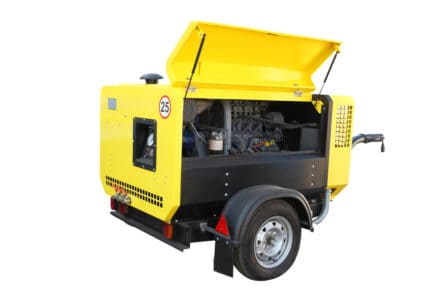
The average cost of a diesel generator is computed using the amount of energy required to operate one 60-watt light bulb for 24 hours using a 100 percent efficient system.
This estimate is based on the average daily cost of one gallon of diesel fuel.
- 60 hours of reserve capacity
- Fuel use per day/month (percentage): 100%
Cost Of A Three-Phase Generator Rental
Before You Rent A Three-Phase Generator, There Are A Few Things You Should Know.
- Three-phase generators are more costly than single-phase generators, but they can generate three times the amount of electricity.
- These sorts of rentals often do not let you to use your own fuel since they need diesel or propane to function correctly; however, you may be permitted to use your own gas for refueling reasons only.
- To save fuel and prevent pollutants, the generator will automatically shut down after a specified length of time. This may also save money on rental costs since there will be no need to pay extra for overuse charges depending on the number of hours utilized each day if this occurs.
In Comparison To Other Generators, How Much Would A Three-Phase Generator Cost?
Because three-phase generators can generate more power than single-phase versions, they will be the most costly choice; however, this also implies that they are not portable and must be put in a permanent site.
A family with an electric water heater or a well pump, for example, may need one of these generators rather than smaller ones that are unable to manage severe loads.
There is no such thing as a set pricing for renting commercial generators, as you may know.
Rather, the price is determined by your precise requirements, the equipment necessary to get them up and running when delivered (or if any assembly is required), and the length of time you’ll need the generator at your location before returning it.
Three-phase generator rentals, on the other hand, are more powerful and give better electrical supply stability during power outages.
Consider the Benefits and Drawbacks of Renting a Generator.
If you’re on the fence about hiring a generator, consider the benefits and drawbacks of your individual circumstances before making a decision.
The first thing you should think about is how long a generator rental business will take to deliver the generator to your location.
Some businesses provide next-day delivery, however this might be more expensive.
Assume you hire a smaller generator (less than 1000 watts).
In that scenario, they may not have any in your region, which is another reason why, if there isn’t currently anything accessible that suits your criteria locally, waiting until the morning can be a possibility.
If you opt to wake up early and go out late at night or during off-peak hours, make sure your contractors do the same! The last thing anybody wants is to return after dark to discover that all of the generators have been hired.
Do you have to worry about what kind of gasoline they use as well? All three fuel types are available: gasoline, natural gas, and diesel.
Even while, in certain circumstances, renting a generator with one option may be preferable than renting a generator with another since it is less expensive over time, they all cost differently.
You should also consider how much space I have available for the generator.
Most people are unaware of how large these machines are, which might complicate matters if there isn’t enough space on-site, such as an additional building, shed, or garage.
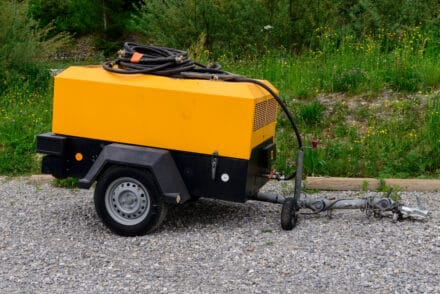
What to Think About When Renting a Generator
Before you go ahead and pay for a rental, there are a few things you should think about:
- Price
- Discounts
- Maintenance
- Dimensions and Type
- How long will it take for the generator to be delivered?
- Buying vs. Renting
#1. Comparing Prices from Various Vendors
For a generator rental, not everyone will charge the same price.
Compare multiple businesses to discover which one fits your budget the best while still providing the services you want.
Each manufacturer, such as Haier, Weiman, and Generac, offers a variety of generator types with varying wattages and other features.
Make sure to speak with a representative from a rental company about what will work best for your needs, including product availability, so you can make an informed decision on which company is best for you based on price and customer service options available after business hours when you may require emergency power!
#2. Check To See If You’re Eligible For Any Discounts Or Special Offers.
In rare circumstances, companies may provide discounts to lower the cost of renting a generator.
Look for ways to save costs in whatever way you can.
#3. How Will The Generator Be Kept In Good Working Order?
Will the firm you rent from provide on-site servicing for the unit? In the event of an emergency, you’ll want to know whether they’ll bring a backup generator.
#4. What Kind Of Warranty Does The Generator Company Provide?
Any reputable rental firm should provide some kind of equipment guarantee, but it’s not always clear what that entails or how good it is.
If you’re not sure, look up reviews online or get quotations from a few different providers before deciding.
Many renters are left on their own when it comes to maintenance and repairs since they do not have access to the same sort of equipment warranty as owners.
Due to increasing fuel prices, taxes, and other expenditures that come with owning your own generator, renting tends to be more costly than purchasing in the long run.
Therefore, if you just need backup power for one day but think you’ll need it on a regular basis, buying rather than renting is a better option.
#5. Think About The Kind And Size Of Generator You’ll Need.
Before acquiring a generator, it’s critical to understand the wattages and capabilities of everything that uses power.
The larger your power demands are in comparison to the size generator you choose, the more costly it will be, and smaller generators will create less waste heat.
You may figure out how many watts, or KVA (kilovolt-amperes), a piece of equipment needs by multiplying its voltage with the amps utilized throughout a full duty cycle.
For example, if an appliance had 120 volts and 8 amperes going through it constantly on average, the total would be 960watts/KW (kilowatt).
Here’s an illustration of how much electricity is used by various devices:
| Appliance | Minimum Wattage | Maximum Wattage |
|---|---|---|
| Router | 5W | 15 W |
| Vacuum | 60W | 45W |
| Treadmill | 280W | 900W |
| Refrigerator | 100W | 200W |
| Oven | 1000W | 215W |
| Microwave | 1000W | 2500W |
| Inkjet Printer | 20W | 30W |
| Espresso Machine | 1300W | 1500W |
It’s critical to consider the wattage of electricity required when choosing a generator.
Underperformance due to harsh circumstances such as severe temperatures or high altitudes may be managed with a 10-20% higher capacity than your needs.
Once you’ve determined what size and type of generators your facility requires for optimal performance, keep in mind that deciding which model is best can be difficult due to the numerous factors that go into selecting one product over another.
However, following some simple guidelines when making this decision should make selecting an appropriate machine much easier.
#6. Learn How Long It Takes For A Rental To Be Delivered To Your Location.
The time it takes for a generator to arrive at your area is determined on where you reside.
Generators, for example, are often delivered in one day in Chicago, but they might take up to three days to reach in specialized places.
Assume the power loss occurs as a result of a severe weather event, such as a storm that knocks down power lines and substations.
Renters may anticipate higher wait times in this scenario due to the large number of customers who want generators.
Customers that want their deliveries accelerated (such as within 24 hours) may be required to pay extra costs and ensure that they have adequate gasoline for numerous days in these cases.
#7. The Benefits of Renting a Generator
When hiring a generator, keep in mind that you should have all of the information you need to make an educated choice on the sort of generator to rent.
Make sure you hire a generator that has enough power to run all of your equipment and then some.
Consider the advantages and disadvantages of diesel and three-phase generators.
Keep in mind the budget you want to keep to and leave room for extensions if you need to rent again.

